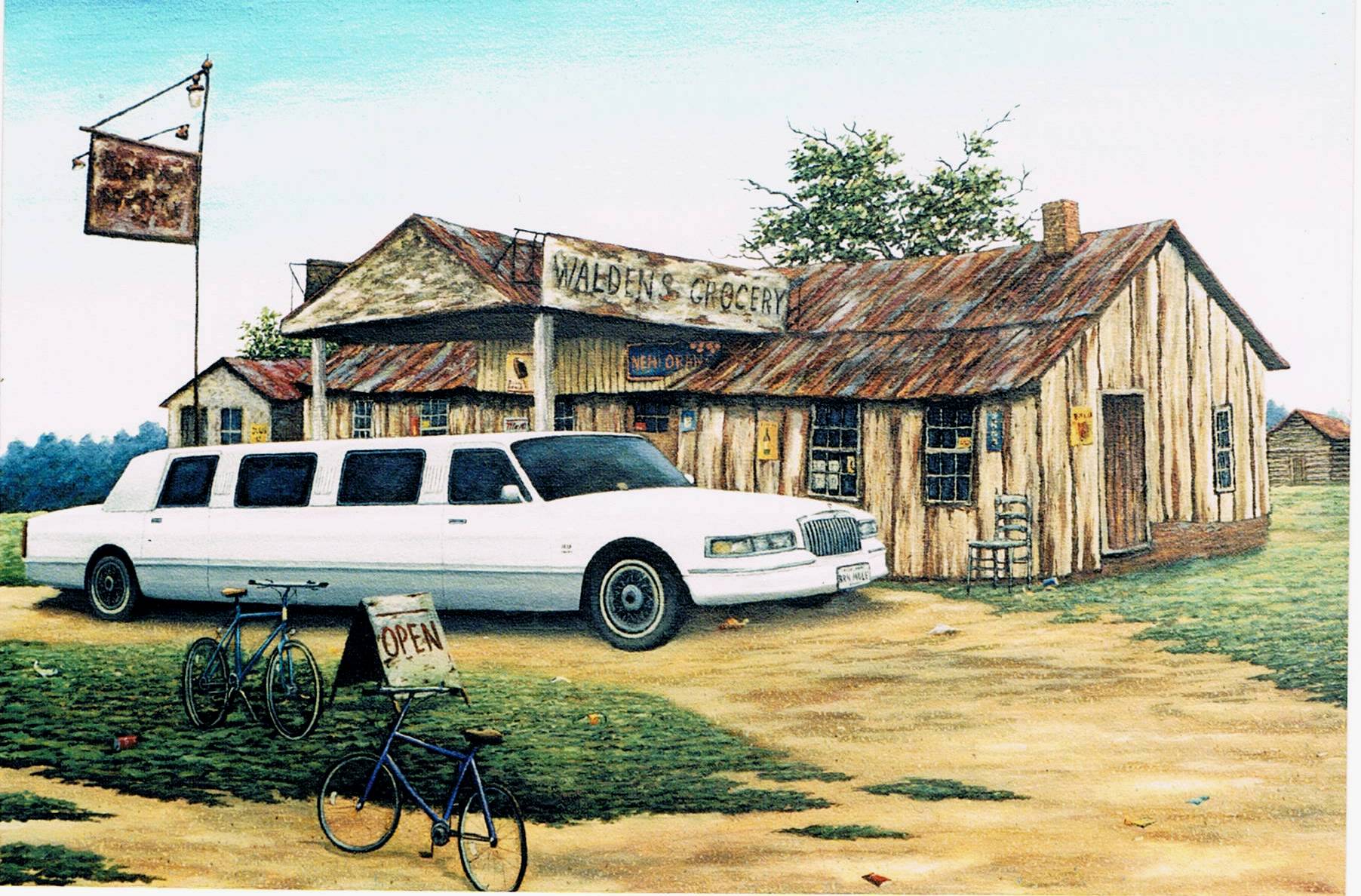Tim Hawkins is one of our family’s favorite comedians. We have watch all of his DVDs multiple times. This particular two minute sketch is the perfect cautionary tale for the author who wants to do a book signing someday.
Blog
Looking for a Brown Mule
I am beyond proud of my uncle, Eldridge Bagley.
Uncle Eldridge is a professional artist. He paints in oil on canvas. Most of his scenes depict Southern rural life in the mid twentieth century. The picture above, from 2001, is entitled Looking for a Brown Mule.
This picture speaks to me. Does it speak to you? Why? Why do you think he chose that title?
Now let's have some fun. Use your …
Focus from the Mountaintop: Career
Focus. We all need it, in our careers, in our lives, even day to day. But as we discussed in previous blogs, there are different kinds of focus. Today we’ll take a look at how you can use Mountaintop Focus to guide you in your career as a writer.
As we discussed before, when you’re on the Mountaintop, you can see for miles and miles. So, first and foremost, Mountaintop Focus is big-picture …
News You Can Use – April 30, 2013
How an E-Book is Like the Treadmill at the Gym – One of the better explanations regarding the question of whether you own your e-books or not. Read this and comment below if it helps you understand. It is worth your time.
With Bookselling in Deep Turmoil, Book Sales Are on the Rise – Excellent article by Peter Onos for The Atlantic.
May Holidays – Excellent list of events in May that you can …
Fun Fridays – April 26, 2013
"The Last Bookshop"
This short film is delightful. It is 20 minutes long, but if you view the first five minutes I think you might be hooked into watching the whole thing.
I'd be curious to hear your thoughts about this in the comments below.
On YouTube the creator of the film actually responds to comments and questions made by viewers! So very rare to see that.
Fancy Schmancy!
I just saw a funny short video about how to go from boring to fancy. Examples included labeling the same bread as "bread" and then "artisan bread" and the identical "cheddar" as "aged cheddar." I would have gone with "artisan" cheddar, myself. The last time our family dined in a restaurant with my in-laws in Connecticut, "Cheese made by Vermont artisans," was offered as an appetizer.
How about …
I DID Finish Your Book…and I Plan to Read it Again!
After reading Steve’s and Tamela’s thought-provoking blogs on why they don’t finish books, I decided to talk about the flip-side. I totally agree with all that Steve and Tamela said. I’m not among the camp that has to finish a book once I've started it. But what a delight it is to find a book that I not only want to finish, but that I wish would never end. Those are rare treasures that live on my …
News You Can Use – April 23, 2013
7 Reasons Your Manuscript Might be Rejected – I loved this post by Darcy Pattison
9 Things to Know Before Your First TV Interview – I would add a 10th. Remember the Media is not your friend. – Be prepared for anything. Including being bumped because of some breaking news (like happened to a client last week…for good reasons!)
How to Market Part-Time While Working Full-Time – Excellent …
A Moment of Silence
Sometimes it is appropriate to set aside our routine and spend a moment in silence. Please use the time you would have spent on our regular Fun Fridays post and pray. Pray for a world in need of redemption. Pray for far too many families shattered by senseless violence (and not just those in Boston). Evil has once again touched us in a tangible way.
Pray the following Psalm with us …
I Didn’t Finish Reading Your Book, Either
Followers of this blog know that on Monday, Steve Laube wrote a superb post on why he doesn't finish reading certain books. I have stopped reading certain books for those same reasons. And for different reasons.
Beginnings
When I was in grade school, one of my mentors said always give a book at least one chapter, preferably three, before giving up. I have followed that rule on any book I …








